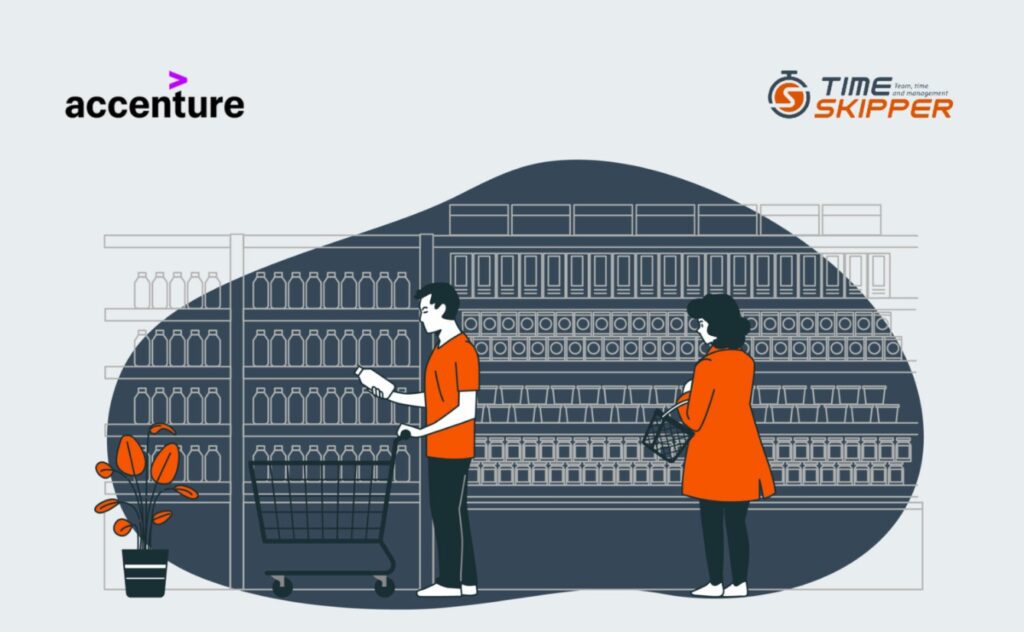What is activity management?

Created to optimise efficiency within industrial production lines, activity management helps teams to organise their work within optimised time schedules, the need for which is becoming increasingly obvious in most business sectors. Work environments, processes, social behaviours and technologies are changing constantly and rapidly, requiring tailored adaptation and responsiveness. And it is precisely this operational […]
Three examples of reorganisations made with Timeskipper

Are you interested in activity management software, but find it difficult to imagine what improvements such a tool could bring to your point of sale? Here are three real-life examples of reorganisations carried out within different retail models and shop types, thanks to the Timeskipper platform. I/ A 4,250 m2 franchise hypermarket: 13% growth […]
How do activity management and workforce management differ?

The terms “activity management” and “workforce management” are often used to define resource management. But while both solutions involve managing and optimising time and people, they come from different starting points and employ different approaches. Workforce management is based on an HR culture and is used to optimise work schedules: itschedules the right number of […]
Optimising assortments

The current period of inflation has made prices the number one priority for food distributors. Customers’ budgets are under pressure, leading them to reassess their needs, and 60% of them have switched to lower ranges of products such as budget or own-brand lines. The hard discount model is the clear winner in Europe. Working on […]
How can department managers be given more autonomy and responsibility?

The Covid crisis speeded up changes in how people relate to work. Remote working and flexibility are now seen as normal, and this means greater autonomy and responsibility for company employees. In retail, where you need to be on hand to stock shelves, for example, this type of organisation is more difficult to set up. […]
What is the workload simulation tool used for at the point of sale?

How does the TimeSkipper platform help chains and points of sale prepare for seasons, open a new store or Drive-in, gain market share from a competitor that has closed for a certain period of time, prepare a budget, or adjust hours to a store’s workload? The essence of a store’s activity is to offer […]
Distribution management: the art of leadership

In the midst of a generational and social context, where relationships with each other and hierarchical behaviour have significantly changed, the distribution sector is going to have to readjust its management approach. It is not uncommon to find that employees have lost trust in their management and there is often a lack of motivation among staff. Most […]
Improving the commitment and know-how of retail managers

Should managerial know-how in retail let itself be overtaken by the changes in new generations and their relationship with work? It is now very complicated to recruit and retain employees. There is also a lack of motivation for assuming responsibility and management. A general lack of interest in work, a lack of know-how and a loss of reference […]
Three key factors to improve operational excellence in retail

Crisis management within retail Against a backdrop of intense competitive pressure, the sector is experiencing considerable organisational constraints linked to its transformation in recent years as well as unprecedented difficulties in recruiting and retaining staff. An unstable situation that is blithely complicating the current economic environment, which includes price increases in energy, raw materials and random […]
What levers can be used to fight the effects of inflation on store organization and profitability?

Inflation erodes store profitability and requires teams to adjust their work organization:
– taking into account daily variations in volumes and supply uncertainties
– giving priority to value-added tasks
– by assigning these tasks to the right person at the right time.
To achieve this, a workload calculation and management tool is necessary.
Timekeeping in the retail industry: the winning asset to optimise your activities

In the retail industry, proper use of working hours has become essential to provide the best possible service to customers and guarantee the store’s profitability. Managing this “good use of working hours” means ensuring that each employee is busy doing the right task, in the right way, at the right time and for the right length of time! This is a vast programme, the starting point of which is to have a repository of time-worth tasks based on in-store operation expertise, know-how and timekeeping techniques!
